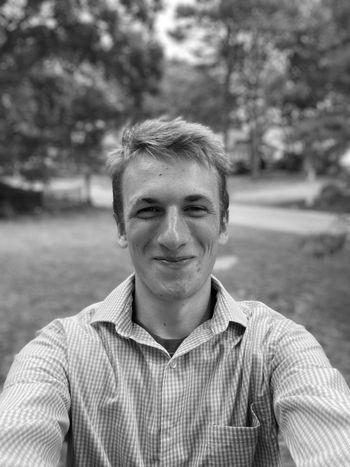Columbia sued by NYC residents for blocking campus access after anti-Israel protests
Residents of New York City have filed a lawsuit against Columbia University for closing part of its quad, thereby removing public access to parts of the campus in the wake of pro-Palestine protests.
'By making the subway more difficult to get to, Columbia has made my life more difficult by blocking what is a public street,' one of the plaintiff’s told The New York Post.
Residents of New York City have filed a lawsuit against Columbia University for closing part of its quad, thereby removing public access to parts of the campus in the wake of pro-Palestine protests that rocked the institution following Hamas’ Oct. 7, 2023 attacks against Israel.
The group of plaintiffs is predominantly elderly, according to The New York Post. They are suing Columbia because the school has allegedly blocked off a public street, which hinders mobility.
“By making the subway more difficult to get to, Columbia has made my life more difficult by blocking what is a public street,” one of the plaintiff’s told the outlet. “It’s not just me, there’s my neighbors who are much older and much less mobile than I am. They become housebound because of Columbia’s problem.”
“I used to take my mother out on campus, or my sister would take her out on campus so she could sit on one of the benches and get some sunlight,” another plaintiff in the case reportedly said. “There’s a lot of senior citizens involved in this petition, because for them, it’s extra blocks. And Columbia has done nothing to accommodate us at all.”
“114th Street can be dark and narrow and icy, and the campus is safe,” plaintiff attorney Toby Golick told the Post. “Columbia’s campus makes a blockade.”
The Columbia administration first officially restricted access to Columbia students and faculty five days after Hamas’ attacks, on Oct. 12, according to The Columbia Daily Spectator. The university kept access restricted until summer 2024, and then resumed restricting access at the beginning of the current 2024-2025 school year.
“The University is evaluating Morningside campus access on an ongoing basis as we balance the desire for an open campus that is fully accessible to all of Columbia’s valued constituencies, including our neighbors, with the need for safety and security during this immediate period of uncertainty,” a Columbia spokesperson told the Spectator.
One Columbia student said that the gate closure was a “necessity” due to the “Free Palestine” movement and the protests associated with it, according to the Post.
“It’s obviously a shame that Columbia’s gates have to be closed, but it’s absolutely a necessity,” the student said. “I blame the Free Palestine movement entirely for the gates closing.”
Columbia has faced ongoing challenges against anti-Semitism on its campus. Recently, following the announcement of the ceasefire between Israel and Hamas, a pro-Palestine student group urged demonstrators to “fight and escalate.”
Earlier this month, Columbia Law Professor Katherine Franke, who expressed support for Hamas, left the school after it was found that she discriminated against students with ties to Israel.
Campus Reform has contacted Columbia University for comment. This article will be updated accordingly.

